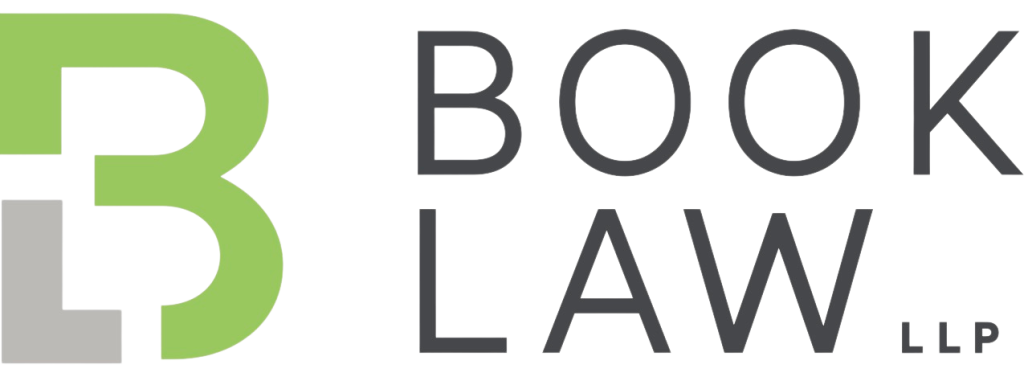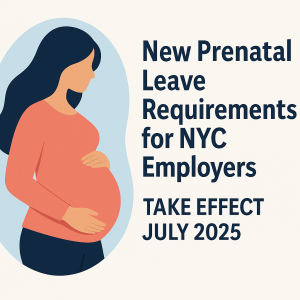Three recent cases remind employers that they are obligated to initiate the interactive process to determine reasonable accommodations for job applicants and employees with disabilities.
Saint Clare’s Health hired Taylor McKay as an EMS dispatcher. Five days before her scheduled start date, McKay was hospitalized and induced into early labor due to preeclampsia, a pregnancy-related condition. McKay contacted Saint Clare’s human resource department to report her diagnosis and condition and ask about next steps. In response, Saint Clare withdrew McKay’s job offer. The EEOC sued Saint Clare’s Health for violating the Americans with Disabilities Act (ADA) by failing to engage with McKay to provide a reasonable accommodation for her disability and terminating her employment. EEOC v. Prime Healthcare Services – Saint Clare’s, LLC d/b/a Saint Clare’s Health, Civil Action No. 2:21-cv-2055 (D.N.J.)
Kathleen May Gordon, on the advice of her physician, tried medical marijuana to relieve her irritable bowel disease (IBD) and, after it worked, applied to be certified as a medical marijuana patient. Gordon’s employer, Consolidated Edison (Con Ed), then randomly selected Gordon for a drug test. She tested positive for marijuana. Gordon informed Con Ed that she has IBD and, a few days later, that she had been certified as a medical marijuana patient. Con Ed terminated Gordon’s employment due to the failed drug test. The New York court permitted Gordon to pursue her claims for disability discrimination, noting that Gordon has disabilities recognized by state and local law and that Con Ed had a duty to engage in an interactive dialogue with Gordon to determine whether there was a reasonable accommodation for her disabilities (such as excusing her single use of marijuana prior to certification). Kathleen May Gordon v. Consolidated Edison, Index No. 152614/17 (Sup. Ct. N.Y.).
Erik Freeman informed Novartis Pharmaceuticals Corp. (Novartis) at the time that he was hired that he suffers from Asperger’s Syndrome. About a year later, Freeman was repeatedly late for work or had to leave early due to illness. Freeman explained to his supervisor, in person and in writing, that his medication for Asperger’s Syndrome was causing his sleep disturbances and physical exhaustion. A few weeks later, Novartis terminated Freeman’s employment. Freeman sued Novartis for disability discrimination in violation of New Jersey law. At a hearing on Novartis’s motion to dismiss the case, Novartis’s counsel argued, among other things, that although Freeman had disclosed his disability, he had not requested an accommodation. The Court rejected this argument, finding that the employer – not the employee – has the obligation to inquire about possible accommodations and initiate the interactive process. Erik Freeman v. Novartis Pharmaceuticals Corp., Case No. 1492-20 (N.J. Super.).
These cases provide three important lessons to employers:
- Employers, not employees, bear the burden of initiating the interactive process to provide a reasonable accommodation for disabilities. Employees do not have to use buzz words such as “interactive process,” or “reasonable accommodation”. Once the employee brings to the employer’s attention (or the employer otherwise has notice of) disability-related performance difficulties, the employer is obligated to engage in the interactive process.
- Employees must provide training for their supervisors and managers on the proper ways to handle disability-related inquiries, and on expanding categories of recognized disabilities under the law (such as status as a medical marijuana patient).
- Employers should have written plans for dealing with disability-related performance difficulties. Such plans should include a statement that the employer’s policy is to provide reasonable accommodations to applicants and employees with disabilities, procedures for employees to seek reasonable accommodations, and instructions for supervisors and managers to respond to requests for accommodations. Such plans are not required by law, but will guide employers through the steps required by law and help protect employers against claims that they did not meet their obligations.
If you have any questions or concerns about federal, state or local laws on disability discrimination and the interactive process in New York and New Jersey, please contact Chaim Book at cbook@mb-llp.com or Sheryl Galler at sgaller@mb-llp.com.

